From the moment the US administration shared a list of trade tariffs by country, just a few days ago, the world has gone mad.
Screaming headlines, anxiety, fear, panic, paranoia, the same old pattern that the mainstream media uses.
They do it because that’s what they are told to do; they follow orders.
Today’s publication has a very special meaning. This article is not just about the tariffs that the US has imposed on a list of countries and the consequences of this action on the economy, businesses and marketing.
It’s something more. It’s a journey.
There are hidden, secret messages. I will not translate everything for you. At some point, you will have to think about it seriously, connect the dots, and make your own translation.
Let’s do this!
US Trade Tariffs Implications
Quick Navigation
- Why Do Countries Use Trade Tariffs?
- Key Tariff Episodes
- Tariffs Implications For Marketing
- Recent Publications
- My Take: Prologue, EU, Taxes, US and the World 1, 2, 3.
- Epilogue
Why Do Countries Use Trade Tariffs?
Countries use trade tariffs – taxes charged on the import or export of goods – for various economic, strategic and political reasons.
Protection of Domestic Industries:
The goal here is to protect local producers and manufacturers from foreign competition. Making imported goods more expensive is a usual application.
Example: US steel tariffs in 2002 aimed to protect the domestic steel industry from cheaper foreign imports.
Government Revenue:
Tariffs are a great source of revenue for governments, mostly in developing countries with limited or restricted tax systems and policies.
Example: Many African nations rely on tariffs as a significant revenue source.
Trade Imbalances:
If a country has a trade deficit, it can use tariffs to reduce imports and encourage domestic production.
Example: US–China trade war tariffs (2018–2020) aimed to lower the US trade deficit with China.
Domestic Production:
Classic cases here are the promotion of local industries, manufacturing, crafts, and agriculture that help to increase labour force employment and the self-reliance of the state.
Example: India imposes tariffs on certain agricultural products to support local farmers.
Retaliation or Leverage in Trade Disputes:
Some countries may put pressure on or even punish their trading partners in disputes or negotiations.
Example: EU tariffs on US goods in response to American steel and aluminum tariffs.
Strategic Industries:
There are certain industries, different for each country or state, crucial for their national security and long-term economic health and prosperity.
Example: Tariffs on high-tech imports to protect local tech industries or intellectual property.
Combat Dumping:
A classic case is when foreign companies sell their goods below the market value (dumping) in order to penetrate the market.
Example: Anti-dumping duties on Chinese solar panels in the EU.
Environmental or Ethical Goals:
Some countries react to imports of certain goods that harm their physical environment or to companies that take advantage of their workforce in an unethical way.
Example: EU tariffs on unsustainably harvested timber.
Key Tariff Episodes
Here are some key tariff episodes from 1970 to today and their implications. Studying them will help us evaluate the current situation.
1971 – US “Nixon Shock” and Import Surcharge:
President Nixon imposed a 10% import surcharge to address a trade deficit and currency devaluation after abandoning the gold standard.
It boosted US manufacturing temporarily and led to tensions with key trade partners. Eventually, the Smithsonian Agreement adjusted exchange rates.
1981–1982 – US Auto Import Restrictions (Voluntary Export Restraints):
Japan agreed to limit car exports to the US, which was effectively a tariff-like measure.
It helped US automakers like Ford and General Motors recover. It also increased car prices for consumers.
1993 – European Union Tariffs on US Bananas:
The EU imposed tariffs favouring bananas from former European colonies over Latin American producers.
It triggered a trade dispute with the US and Latin America. Finally, in 2012, the EU agreed to lower tariffs.
2002 – US Steel Tariffs:
President Bush imposed tariffs up to 30% on imported steel to protect the domestic steel industry.
It briefly bolstered domestic steel producers. It also led to higher costs for industries relying on steel, such as automotive and construction. Finally, in 2003, it was revoked after WTO ruled them illegal and trade partners threatened retaliation.
2009 – US Tariffs on Chinese Tires:
President Obama implemented tariffs of 35% on Chinese tire imports.
It saved some US tire industry jobs. It also cost US consumers an estimated $1.1 billion due to higher tire prices.
2018–2020 – US–China Trade War:
President Trump imposed tariffs on $360 billion worth of Chinese goods, with China retaliating on US exports.
It slowed global trade and supply chains. It also increased costs for US consumers and businesses and encouraged companies to diversify their supply chains away from China.
As we can see, protecting domestic interests and maintaining international trade relationships are not easy tasks.
Tariffs Implications For Marketing
Marketing strategies are also influenced by trade tariffs, particularly in global trade sectors. Here are their effects over the last 30 years.
1990s: Globalization and Trade Agreements:
The North American Free Trade Agreement (NAFTA) and WTO’s establishment reduced tariffs globally, encouraging cross-border trade.
Brands expanded their campaigns internationally and leveraged cost savings and diverse audiences. Marketing had to adapt to various different cultures and global campaigns became the norm.
2000s: Protectionism and Sector-Specific Tariffs:
US steel tariffs (2002) raised input costs for industries like automotive and manufacturing.
Marketing executives were forced to justify premium pricing and emphasize product high value. Marketing focused on targeting niche segments, such as high-paying clients, to offset rising costs.
2010s: US-China Trade War and Shifting Supply Chains:
The escalation of tariffs during the US-China trade war (2018–2020) impacted consumer goods, electronics, and retail.
Performance marketing came as a result of cutting broad campaigns with a focus on maximising ROI. Brands had to balance consumer perceptions with transparency in order to communicate pricing changes. Marketing promoted products sourced from non-tariffed regions to remain competitive.
2020s: COVID-19, Inflation, and Green Tariffs:
Lockdown-related disruptions, inflation, and the EU’s taxes created a plethora of challenges.
Green tariffs led brands to emphasize eco-friendly practices. Marketing prioritized digital channels to cut costs and measure performance more effectively. We watched value-driven promotions like bundles and loyalty programs becoming more popular.
Key Trends Across 30 Years:
- Reduced ad budgets with traditional media suffering more than digital.
- Resilient channels like online video and CTV emerged to enhance targeting.
- Transparency, value, and sustainability came to the forefront as marketing used a more consumer-centric approach.
Recent Publications
Unilad: People React In Horror…
Summary: Donald Trump’s announcement of sweeping new tariffs triggered a historic $2 trillion stock market loss in just 25 seconds. Markets worldwide plunged, with US tech giants and global indices suffering major hits. The US dollar fell to a six-month low, while gold soared to record highs. Analysts called the tariffs a negotiation tactic, warning of prolonged volatility. Social media erupted in outrage, as fears of economic instability gripped investors and leaders across the globe.
CNN: Why Is Trump Rewriting US Economic History?
Summary: Trump is reshaping US economic history to justify his tariff policy, ignoring expert consensus and historical outcomes like the Smoot-Hawley Act deepening the Great Depression. Critics say he’s misleading Americans, claiming tariffs can replace income tax and restore sovereignty. Economists argue tariffs hurt consumers and won’t solve deficits. Trump idolizes past protectionist policies, despite major differences in today’s economy. His narrative contrasts sharply with facts, prompting concern over the historical accuracy and economic risks of his approach.
Trump’s Speeches
Excerpts:
– “From 1789 to 1913, we were a tariff-backed nation, and the United States was proportionately the wealthiest it has ever been.”
– “In the 1880s, they established a commission to decide what they were going to do with the vast sums of money they were collecting. We were collecting so much money so fast, we didn’t know what to do with it. Isn’t that a nice problem to have?”
“Then in 1913, for reasons unknown to mankind, they established the income tax so that citizens, rather than foreign countries, would start paying the money necessary to run our government.”
“Then in 1929, it all came to a very abrupt end with the Great Depression, and it would have never happened if they had stayed with the tariff policy. It would have been a much different story.”
– We already have $7 trillion in investments coming to our country, the economy will boom, and the rest of the world will try to make deals with US. For many years, they have all taken advantage of us.
– America is going to be very rich again and it’s gonna happen very quickly. It’s time for the US to return to the system that made us richer and more powerful than ever before. From 1870 to 1913, the US experienced the richest period in its history. They setup a great tariff commission. All revenue came from tariffs. There was no income tax back then.
Ursula Von Der Leyen’s Statement
Summary: President Trump’s global tariffs threaten the world economy, raising costs, disrupting supply chains, and hurting vulnerable citizens and businesses. Europe regrets the move, warning it will fuel inflation and protectionism. While acknowledging flaws in global trade, EU leaders stress tariffs aren’t the solution and advocate negotiation over confrontation. Europe is preparing countermeasures to protect its industries, emphasizing unity and resilience. The EU will continue defending fair, rules-based trade and supporting those impacted by the US actions.
Marketing Dive: How CMOs Can Stay Reactive As Trump Tariff Chaos Threatens Budgets
Summary: Trump’s “Liberation Day” tariffs sent shockwaves through the global economy, wiping out $2 trillion from markets and triggering recession fears. As usual, marketing budgets are among the first to be slashed.
CMOs must now shift gears—fast. Agility, cost-cutting, and smart trade-offs will be key. Gartner’s Ewan McIntyre likens the moment to the 2020 pandemic: “Know what you can afford to lose—and what you can’t.”
Some brands, like Ford, moved quickly, launching patriotic campaigns and price drops. But Trump’s unpredictable tariff rollouts make long-term planning risky. CMOs must be ready to pivot often and “kill their darlings”—scrapping once-promising strategies that no longer fit today’s landscape.
Forecasts are already down: Magna cut its 2025 ad growth estimate from 4.9% to 4.3%, and WARC dropped global projections by nearly a point—before the full impact of the tariffs hit. CFOs are getting jittery, and marketing is their first stop for cuts.
That’s pushing many brands toward lower-funnel performance marketing, but McIntyre warns: “Performance channels like search aren’t as cheap—or effective—as they used to be. There are no easy plays.”
Martech: How Tariffs Impact Retail Sales and Ad Spending
Summary: Tariffs are back in focus, and marketers are bracing for impact. The NRF and Deloitte forecast slower retail growth in 2025—around 3%—as inflation and tariff-related costs pressure margins. History shows advertising is often one of the first cuts during tariff hikes, with traditional and social media spending hit hardest. In 2025, factors like tight labor markets and global instability could worsen the outlook. Marketers should lean on data, optimize high-ROI channels, and avoid deep discounting. Instead, emphasize loyalty and value. Watch for tariff exemptions and government aid—small advantages could make a big difference in a volatile year.
American Patriot
Summary: On April 2nd, Trump launched a bold economic move framed as a strike for national sovereignty, not just a tariff shift. The action disrupted globalist systems, boosted gold and silver, and marked a shift toward domestic control over foreign dependency. Positioned as a “divine reset,” it aims to empower American producers, workers, and families. More than reform, it’s a reversal of decades of economic policy—and it’s already reshaping the global landscape.
Anonymous
Summary: Trump calls today “Liberation Day” because his tariff plan aims to eliminate income taxes and end Americans’ financial bondage to a corrupt system. If successful, tariffs would replace income tax, freeing citizens from funding wars and enriching elites through their labour. The goal is to restore economic freedom, improve quality of life, and dismantle IRS control. If it works, today marks the beginning of a new era—one where Americans are no longer tax slaves.
Anonymous #2
Summary: Tariffs are more than trade tools—they’re vital for economic independence. Before 1913, they funded the US government, avoiding direct taxes on citizens. Tariffs protect American jobs and industries from cheap, low-quality imports, support domestic production, and strengthen national security. They also give the US leverage in trade negotiations. Opposed mostly by global elites and corrupt politicians, tariffs prioritize American workers and values. To protect our economy and future, we need strong tariff policies—not taxes—and put America first.
Anonymous #3
Summary: The US stock market isn’t falling due to Trump’s tariffs, but because the wealthiest 3%—who offshored American jobs and gutted manufacturing—are now panicking. After decades of lobbying for policies that harmed middle America, they’re facing financial losses as those choices unravel. Their scramble to protect profits reflects the long-term consequences of prioritizing global outsourcing over national interests.
Anonymous #4
Summary: Russia? Exempt. And not just that—a multi-billion-dollar US–Russia deal in energy and trade is already in motion. Silence from the usual critics.
Meanwhile, countries are racing to sign deals with the US—lowering prices, boosting investment, and handing over concessions. They’re lining up. They’re complying.
Back home, analysts cry over the markets, missing the bigger picture: Trump’s playing a high-stakes global game. It’s not about Putin. It’s about power.
The rules are changing—and we haven’t seen anything yet.
Anonymous #5
Summary: The trade war just exploded. Trump hit Canada and Mexico with 25% tariffs, and China with 10%. That means a $50,000 Canadian car now costs $62,500 in the U.S.—and the retaliation came fast. Canada matched with 25%, Mexico promised the same, and China’s heading to the WTO.
So why would Trump raise prices on Americans? Two reasons: First, shift consumer habits—buy American, manufacture in the US Second, Leverage—use economic pain to force new deals, stop illegal immigration, and halt Fentanyl.
And he’s not bluffing. Canada sends 75% of its exports to the US. and Mexico 78%. Together, they rely on the US for a big chunk of their GDP. But America? Only 2.7% of its GDP comes from exports to them.
Trump knows who has the leverage—and he’s playing that hand hard.
1News: Over 50 Countries Reach Out For Tariff Talks
Summary:
President Trump’s sweeping tariffs have triggered global reaction, with over 50 countries—including allies and rivals—initiating trade talks with the US, according to top White House officials. While critics warn of rising inflation and economic uncertainty, the administration stands firm: the tariffs aim to reset decades of unfair trade and rebuild America’s industrial base.
Treasury Secretary Scott Bessent says these negotiations will take time, emphasizing the need for real, credible offers. Trump, meanwhile, remains confident, urging Americans to “hang tough.”
Despite pushback from countries like New Zealand and European allies, many are already coming to the table, including Vietnam and Israel. Even within the US, the tariffs have sparked debate, with some Republicans proposing new oversight while others rally behind the President’s bold strategy.
Critics, including Elon Musk and former Treasury Secretary Lawrence Summers, argue over the long-term goals—whether tariffs are a temporary bargaining chip or a permanent economic pillar. But Trump’s team maintains that the goal is long-term prosperity, even if it means short-term pain.
The bottom line: the world is reacting, America is negotiating from strength, and the rules of global trade are being rewritten.
My Take
It’s risky to try to predict the consequences of these trade tariffs. However, it is good to start studying the developments, as business owners or as citizens.
On the one hand, we see many economic analysts predicting chaos and recession, on the other hand, many argue that this system will work for the US and improve the standard of living.
I am somewhere in the middle because we don’t know what will happen. It’s too early to judge.
Besides, as I am writing this article, the flow of news is so fast and everything changes by the minute.
The US administration, for example, decided to pause tariffs for a while so that countries could negotiate new trade deals.
We are going to watch even more aggressive announcements, not everything is real.
Let me start with the European Union, may God make it a union, its failure so far is unrepeatable. All states have been suffering from the very first day. An economic union only on paper.
All these countries were supposedly united economically but with different terms and values for each. Germany buys 1 Euro with 2 Marks, and Greece buys 1 Euro with about 340 Drachmas.
The minimum wage in Ellas is around 850+ Euro per month. In Germany, it is 2,200+ Euro.
The cost of living in European countries? Extreme differences in basic products, food, fuel, entertainment, electronics, clothing, you name it.
This is not what I call an economic union, more of an economic covert operation to promote a certain agenda with the ultimate goal being the enslavement of the people.
The economy of Europe has been going from bad to worse for decades. When will things get better? If nothing changes, never.
Now, they pretend that the American tariffs ruined their plan, a plan that was ruined from the beginning with only those responsible for it who organized it.
The economy of my country has collapsed since the 1990s and the people have become poorer. On the other hand, of course, there is a very well-off segment of society that is not affected by economic changes, or at least has not been affected until now. Because now something is going to change.
Do you remember the famous “Green Energy”? Recently, Germany admitted that it had failed miserably. My country is flooded with wind turbines, which only destroy the natural environment. Do you know the cost of disposing of them or where exactly they are buried and the consequences?
Not to mention that the cost of energy to German businesses has risen by 60% in just five years.
Another huge issue? The vast hordes of illegal immigrants with enormous anti-human consequences: The rise of criminal activities, rapes, drugs, human trafficking, and the list goes on…
Let the European leaders admit that their plan failed. Besides, the well-being of their people is not on their list of priorities. Only specific groups are favoured.
But it was their plan, the people were not even consulted.
Let’s discuss taxes, which play a significant role in our lives.
Taxes vary widely around the world, but most countries rely on similar categories to fund public services. Here’s a breakdown of the main types of taxes globally, with emphasis on the US, Ellas (Greece), and the EU:
Common Types of Taxes Worldwide:
- Income
- Corporate
- Sales (VAT) Value-Added
- Property
- Capital Gains
- Payroll/Social Security
- Excise
- Inheritance/Wealth
- Custom Duties/Tariffs
There are also
- Estate
- Donations
- Green
- and many more, especially in Ellas.
With all those different kinds of taxes, is it even possible for people to prosper? Are you really working for yourself as a business owner and how much money do you get to keep out of your revenue?
Just think about it.
Let’s talk about America and the world.
But first, let me highlight that we should examine tariffs in combination with other factors that are equally important. Tariffs are not just tools for economic policy; they are part of a broader ecosystem and have implications for various sectors of society.
We need to take into account the recent past, the political landscape, global economic shifts, trade agreements and alliances, and supply chains, as well as environmental and social consequences.
The most important factor of all is the fact that the FIAT money system does not work for us, the people. It works only for a small minority. Therefore, it should be replaced as soon as possible.
Some will argue here that FIAT money is flexible in monetary policies. For example, central banks can expand the money supply in order to fight against a recession or high inflation.
Recessions and inflation are caused only by those who control this system.
To put it simply, what destabilizes the economy is government overspending and nothing else. The producer, the manufacturer, the middleman, the agent, the transporter, the store owner, the customer, the client, do not destabilize it; governments do.
Corruption does.
The media will tell you that these are scientists working for the well-being of their societies – no, it’s the well-being of their own.
Some will also argue that without physical assets (gold and precious metals), governments can fund large projects immediately by issuing more currency (paper and ink currency, fake, thin air).
That’s exactly how they take advantage of paper money to fund NGOs and other shady operations; money laundering disguised in charity clothes. That’s how they fund multinational corporations and monopoly, killing the middle class and the small business owner.
Some will say anything to distract you and make you feel that they care about you.
I know that humanity got enslaved back in 1913.
FIAT money lacks intrinsic value, leading to unsustainable debt and wealth inequality. Those who hold significant wealth in assets and real estate are favoured, and the majority of people are poor.
Can you answer a simple question?
With all this power in their hands to print all the money in the world, as much as they want, why are there countries and people who suffer right now? Why don’t they help those in need and fix everything with their fake money?
They don’t want to. They want you to be their slave. That’s why they tax you. You pay taxes, although they can print money out of thin air.
Is that justice for you?
Without assets, money is backed by faith, well, we’ve had enough of it. We demand a shift, right now.
The juice.
I translate the latest US trade tariffs as part of a large-scale operation. A strategic plan that affects everyone, all people, all the countries, and all the governments.
Let me explain.
A few years back, in early 2017, during his inauguration speech, Trump said…
“Today’s ceremony, however, has a very special meaning. Because we are not merely transferring power from one administration to another, or from one party to another. But we are transferring power from WDC and giving it back to you, the people…”
Long pause.
That’s exactly what I am watching unfold ever since, this transfer of power.
How is this power being transferred back to the people?
Some facts:
We watched the US economy flourish in 2017.
Many scandals started being exposed.
Politicians started getting punished and having their assets frozen.
The BRICS Alliance grew significantly.
Central banks from all countries purchased vast amounts of gold during the last years in order to comply with the enforcement of ISO 20022, which demands asset-backed currencies.
Trump signed the National Quantum Initiative Act in 2018. I discussed the Quantum Financial System in an older publication.
A series of new executive orders have been signed by the US administration since early 2025 to end the weaponization of the federal government, ban federal censorship (remember the covid-era days?), unleash the American energy, slash government waste and provide additional transparency in government spending to the American people, and so much more.
These are all things that promote the well-being of us, the people.
These are tasks that are getting done, completed, as we speak.
These are not just promises.
DOGE, for example, discovered millions of non-citizens with social security numbers, millions of dead people receiving pension funds, hundreds of NGOs laundering money, and trillions of taxpayer dollars in untraceable payments.
And they took action. They even fired thousands of IRS agents. They took down USAID, which was funding… all the “good” people.
I see that we are moving toward an asset-backed monetary system, at last. Also moving toward eliminating income tax (and more taxes). Latest example? What happened in Mississippi?
I see corruption getting punished.
Related: The News page.
The trade tariffs are part of a strategic plan aiming to shake up the economy, its current base and shady foundation, and finally, wake people up to the fact that they are slaves to this system.
These tariffs are part of the cleaning operation put in place to end the mass hypnosis and demonstrate what was happening behind the curtains for so long. So, so long.
The cleaning operation affects the globe, not just the US. More on that later.
Epilogue
Θα ήθελα να κλείσω με ένα από τα δελφικά παραγγέλματα, σχετικό με τις επιχειρήσεις.
– ΠΛΟΎΤΗ ΔΙΚΑΊΩς. Απόκτησε πλούτη με δίκαιο τρόπο.
I’d like to close with one of the Delphic Commandments, related to business.
– WEALTH JUSTLY. Acquire wealth in a just manner.
I urge you to research the past to discover how humanity got enslaved by paper money.
Now that things are changing, we need to help one another. As global corruption is getting unmasked, there will be dark events or incidents that could make people fear or panic.
Don’t panic. Even if the stock markets crash, it’s a good thing. These markets are holding you prisoner.
We can only rise from the ashes of the old system, like the phoenix does.
For business owners, I recommend that you pay close attention to the needs of your clients and create products and services that impact their lives. Don’t overestimate profits and try to stand out for principles that matter.
Plus, I want to share…
Excerpts from the Declaration of Independence, Congress, July 4, 1776:
- Certain unalienable Rights, that among these are Life, Liberty and the pursuit of Happiness.
- That to secure these rights, Governments are instituted among Men, deriving their just powers from the consent of the governed.
- That whenever any Form of Government becomes destructive of these ends, it is the Right of the People to alter or to abolish it, and to institute new Government, laying its foundation on such principles and organizing its powers in such form, as to them shall seem most likely to effect their Safety and Happiness.
- But when a long train of abuses and usurpations, pursuing invariably the same Object evinces a design to reduce them under absolute Despotism, it is their right, it is their duty, to throw off such Government, and to provide new Guards for their future security.
References:
- The 400-page 2025 National Trade Estimate Report On Foreign Trade Barriers of the US President (Trade Agreements Program). It includes, in chronological order, every single tariff and trade restriction imposed on the US everywhere in the world.
We’ll see what happens with those tariffs. Stay tuned!
That’s it, thanks for reading, another article has finished, here on WebMarketSupport. I am waiting for your comments. Till next time.

Tasos Perte Tzortzis
Business Organisation & Administration, Marketing Consultant, Creator of the "7 Ideals" Methodology
Although doing traditional business offline since 1992, I fell in love with online marketing in late 2014 and have helped hundreds of brands sell more of their products and services. Founder of WebMarketSupport, Muvimag, Summer Dream.
Reading, arts, science, chess, coffee, tea, swimming, Audi, and family comes first.


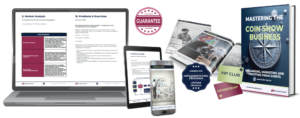
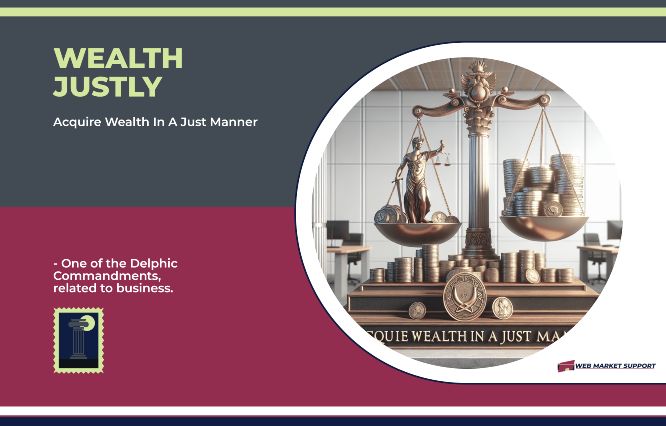




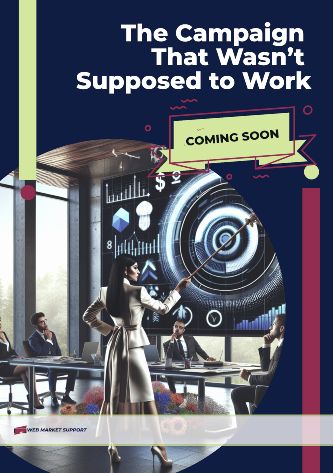

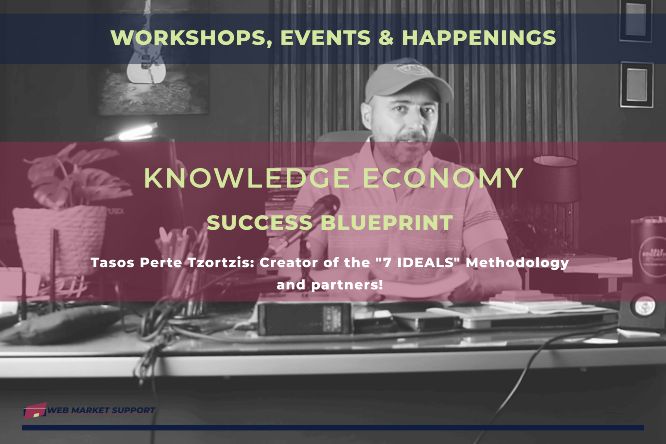
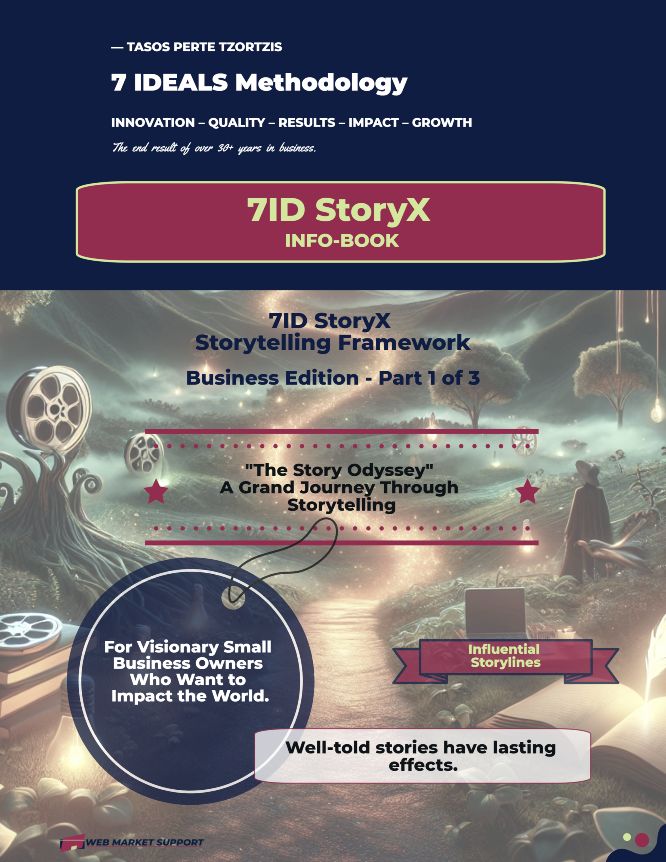



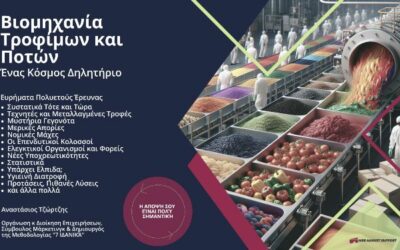

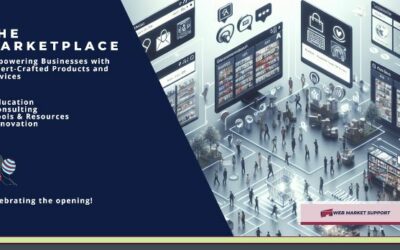

0 Comments